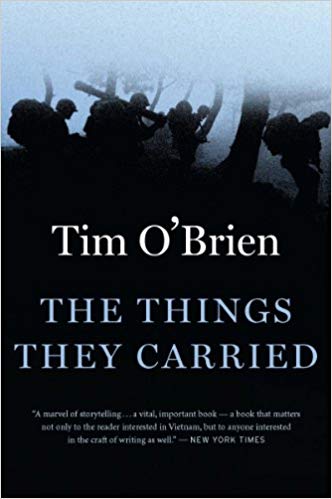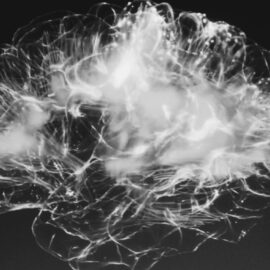

This article is an excerpt from the Shortform summary of "The Things They Carried" by Tim O'Brien. Shortform has the world's best summaries of books you should be reading.
Like this article? Sign up for a free trial here .
What happens in the chapter in The Things They Carried called “Night Life”? How does “Night Life” demonstrate the ways war can make a soldier go crazy?
We’ll look at the basic elements of this chapter from The Things They Carried, “Night Life,” and discuss how seeing your fellows die, one after the other, can lead to paranoia.
The Things They Carried: “Night Life”
Before this chapter from The Things They Carried, “Night Life,” O’Brien recalls Rat Kiley almost hugging him as he was being helped into the chopper. After a short hospital stay, O’Brien returned to the company in the field.
In this chapter from The Things They Carried, “Night Life,” O’Brien returned to the company. When he returned, however, he discovered that Kiley was no longer with the unit, having suffered his own gunshot wound and transferred to a hospital in Japan. What really happened, however, was much more disturbing. Kiley had, in fact, suffered a mental breakdown, believing that the insects in the jungle were personally out to get him. He had begun compulsively scratching himself, eventually covering himself in scabs and open sores. The strain of his job as a medic, having to constantly attend to the dead and dying, had finally pushed him past his limits. In desperation, Kiley shot himself in the foot to get out of active combat duty, although Cross told Kiley that he would present it as an accident to the military authorities. Kiley’s descent into madness is the main topic of this chapter from The Things They Carried, “Night Life.”
In earlier chapters, before this chapter from The Things They Carried, “Night Life,” Rat Kiley had shown his sensitivity to death. The soldiers note that the death of Ted Lavender was un-dramatic and oddly mundane—in their words, “the poor bastard just flat-fuck fell. Boom. Down. Nothing else.” Of the 17 men—now 16—only Rat Kiley shows any shock as he repeatedly remarks, as if in shock, “The guy’s dead.”
Kiley could also be cruel. Before this chapter from The Things They Carried, “Night Life,” Rat Kiley tortured a baby water buffalo with a submachine gun, methodically blowing away its limbs and body with surgical precision (he was a medic, after all) while the company watched the animal bleed to death, fascinated by how long it took to die.
Madness was baked into the Vietnam experience. Rat Kiley was a keeper of these tales (and also a known braggart and exaggerator).
O’Brien reflects on two separate occasions in which he was hit by gunfire in Vietnam. The first time was when Rat Kiley was still with the company. As a skilled medic, Kiley had been able to successfully apply a compress, stop the bleeding, and get O’Brien to an emergency evacuation helicopter.
The New Medic
In another chapter before this chapter from The Things They Carried, “Night Life,” Rat Kiley was replaced by a new medic named Bobby Jorgenson, who was young, inexperienced, and badly unprepared for when O’Brien was shot on a second occasion, this time in the buttocks. Jorgenson failed to treat for shock and did a shoddy job stitching the wound. As a result, O’Brien became infected and nearly succumbed to gangrene.
In his new assignment, O’Brien had time to reflect on his experience of getting shot and came to hate Bobby Jorgenson for the incompetence which nearly led to his death. He brooded over this and yearned to exact revenge on Jorgenson. While Alpha Company was at the base, Jorgenson and O’Brien accidentally ran into one another. Jorgenson was embarrassed and tried to apologize to O’Brien, explaining that he had been paralyzed by fear when he saw that his fellow soldier had been shot and that it was up to him to save his life. Jorgenson told O’Brien that he had been suffering from recurring nightmares and trauma thinking about what happened to O’Brien. But O’Brien was unable to move on—his experience in the war and the things he’d seen had turned him into a crueler, meaner version of his former self. He was now capable of evil.
The theme of this chapter from The Things They Carried, “Night Life,” is that war changes us, sometimes irreversibly.
———End of Preview———

Like what you just read? Read the rest of the world's best summary of "The Things They Carried" at Shortform . Learn the book's critical concepts in 20 minutes or less .
Here's what you'll find in our full The Things They Carried summary :
- What the Vietnam War was like for soldiers on the ground
- How Vietnam soldiers dealth with the psychological stress of death around them
- How fictional stories can be truer than the truth






